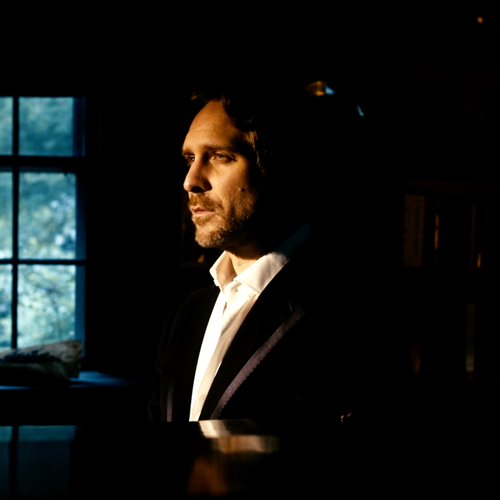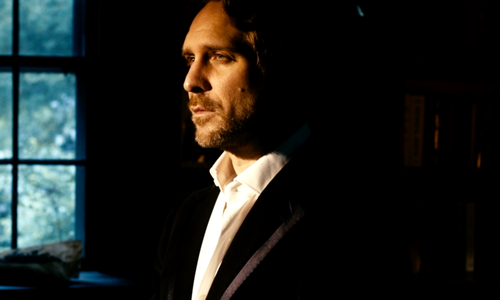Christos Vayenas
Details
Christos Vayenas full profile / Voice, Orchestra / 2 musicians
Composers featured: Purcell, Jenkins, Martynov
Full program notes
Henry Purcell (1659-1695) Fantasia No.1 a 3 in D minor, Z 732
Henry Purcell - Fantasia No. 7 a 4 in C minor, Z 738
John Jenkins (1592-1678) Fantasia No. 3 a 6 in C minor
Vladimir Martynov (b. 1946) "Magnificat"
The works of the first two English authors of the 17th century correlate with Magnificat of Martynov and help tune our perception. They were written at a time when no one else wrote music for such compositions and no one was interested in this kind of music anymore. Rather, they are like spiritual exercises.
"Magnificat - quinti toni" (in the fifth of the eight canonical ecclesiastical "tones") by Martynov, based on Gregorian material, it is the 5th tone Magnificat which underlies all movements. In this work, a synthesis between Gregorianism and romantic sounding is carried out, and there is a union between the Gregorian jubilee and the romantic groupetto. Inside all parts there is a modulation, which symbolizes a ladder leading to heaven. And in each rung this ladder is shrinking more and more, which means that with each part we are getting closer and closer to the top of this ladder, where the glorification of the Virgin takes place.
VLADIMIR MARTYNOV (b. 1946) is one of the leading composers of the Russian avant-garde, an experimentalist of serial, minimalist and electronic music. His ethno-musicological studies into the folk music of Russia, his philosophical and religious ideas and his great knowledge of Renaissance polyphony as well as Orthodox Chant all inspired his compositions. His principles are: commitment to traditional rules; modality as a constant feature of musical language; and repetitiveness as a means of immersion in states of prayer, mantra, and ritual in general.
More about the composer pleas read here https://en.m.wikipedia.org/wiki/Vladimir_Martynov
TATIANA GRINDENKO was born in the Ukraine and began her musical career at the age of six. She studied at the Tchaikovsky Conservatory (Moscow) with Professor Yankelevich. In 1968 Ms.Grindenko won The First Prize and The Golden Medal at the World Youth Competition in Sofia, Bulgaria, in 1970 she became a Prize Winner at the IV International Tchaikovsky Competition. Two years later she was awarded The First Prize at Wieniawski Competition in Poland.
The scope of her musical interest is unusually broad. Although her reputation is that of a romantic violinist, she also champions modern music, including avant-garde, jazz, rock and experimental electronic music. In 1982 she co-founded the first Baroque ensemble in Eastern Europe, the Moscow Academy of Ancient Music. T.Grindenko also devotes her energy to bringing back to life forgotten compositions of the 20th century such as Roslavetz’s Violin Concerto, the first public performance of which she gave in Moscow in 1989.
Many composers have dedicated works to her, including Schnittke, Artiomov, Martinov, Part and Silvestrov. Luigi Nono’s last composition, "Hay gue camminar" for two violins, is dedicated to her and Gidon Kremer. In 1999, Tatjana Grindenko was the Mentor of the Hannover International Violin Competition’s "Musikalisches Collegium" for contemporary music.
In 1999 Tatiana Grindenko founded the unique ensemble "OPUS-POSTH." Together with the leading artists of video art as well as with the poets the Ensemble realized following multimedia projects: "Bach-2000", "Night at Galicia", "Seasons", "Russian-German Requiem", "Plays of Angels and people", "Song of songs" and other. Repertoire of the Ensemble includes compositions of V.Martynov, A.Part, F.Glass, J.Xenakis, A.Knaifel, G.Kancheli and others.
Other programs from this ensemble
- Musician profile: Christos Vayenas
-
Instruments: Piano, Flute
- Musicians: Christos Vayenas, Karna Mendonca, Aimee Toner
- Musician profile: Christos Vayenas
-
Instruments: Piano, Flute
- Musicians: Christos Vayenas, Aimee Toner, Karna Mendonca
- Musician profile: Christos Vayenas
-
Instruments: Piano, Flute
- Musicians: Christos Vayenas, Karna Mendonca, Aimee Toner
- Musician profile: View player profile
- Composers: Series
-
Instruments: Piano
- Musician profile: View player profile
- Composers: Tchaikovsky, Vivaldi, Sollima
-
Instruments: Cello, Voice, Orchestra

 Continue with Facebook
Continue with Facebook
 Continue with Google
Continue with Google
 Continue with Apple
Continue with Apple
